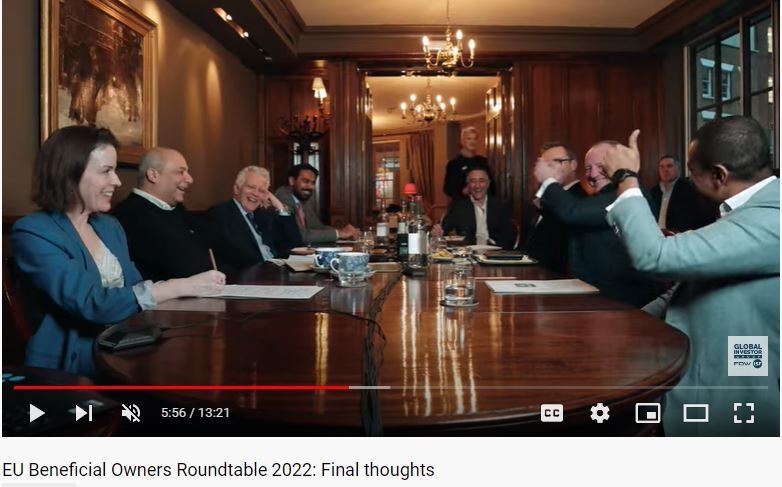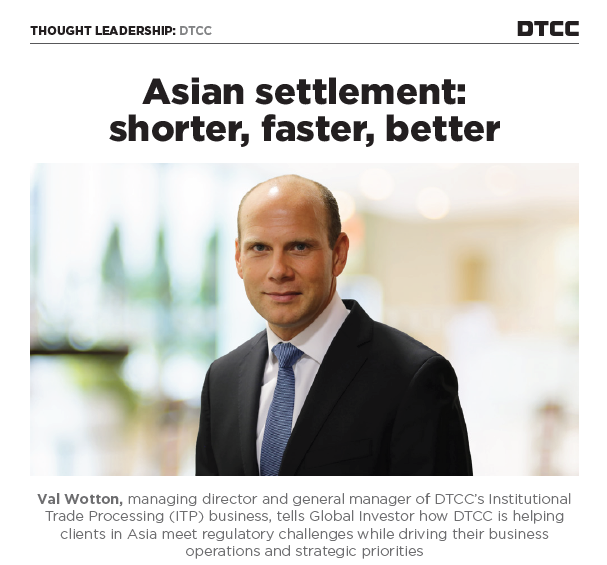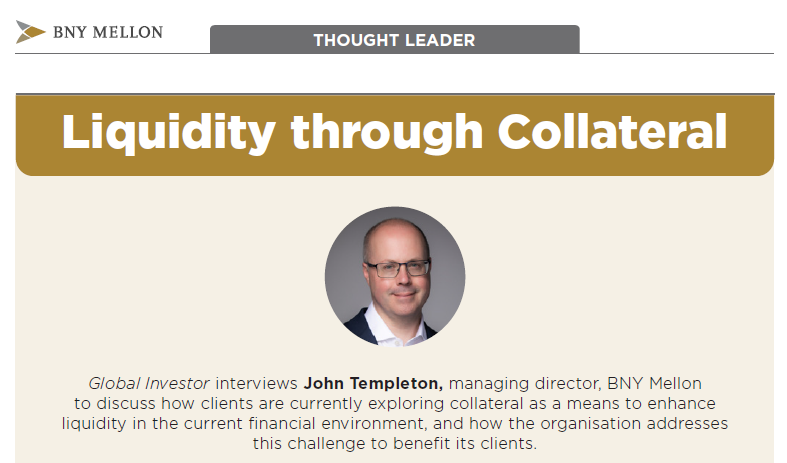European Beneficial Owners Roundtable 2022: final thoughts

Davis: I think the theme has definitely been around efficiency. I have to agree around tokenisation when it comes to settlement efficiency. I think Andy
Geggus: For this year. Nick
The second one is cash solutions. We spoke about it earlier, we have become a securities finance industry. And I think that once again, you’re seeing these news reports regularly about different banks, and some of the peers here, coming up with solutions for clients that are long cash, and also clients looking to raise cash.
And then lastly, it’s real-time data. We spent a lot of time in the last two years implementing data depositories to the regulators for SFTR. And I think that the firms need to mobilise that more and be able to use real-time data for clients, and to use real-time data to manage programs, as opposed to waiting for systems to download things overnight.
Kiely: I said earlier that over the next couple of years, lending digital assets and the tokenisation of collateral will be very important. But I think that’s a few years away. For the next 12 months, it’s looking at greater access to the retail space. I think in the next 12 months getting the retail investor access to this market will be hugely important and it will have a have a big impact. Lastly, I’d like to see this year be the end of the phrase, ‘I’m sorry, I was on mute’.
Dolce: From my perspective, it’s finding a liquidity solution, and to leverage on what Sunil said at the beginning, it’s more moving from an Alpha contribution to optimisation. We are good at doing that but implement such approach for all our clients will depend on their profile.
When it comes to APIs – I can’t find a better word for that. We use industrialisation internally, but I think API is the best. Clearly if we want to have something more efficient, we need to be able to plug and play, and currently we are not a plug and play industry.
The final part would be a more robust operating model. We think about the client, the trading part, and we forget that the middle office and the back office are still struggling. We need a more robust operational framework as an industry.
Chessum: I think this year is really going to be the year of the beneficial owner!
Given what we were saying before, there’s a lot more interaction between beneficial owners now: they have to be more advanced in their way of thinking and be more involved in what’s actually happening in lending programmes. It’s good for the market and it’s good for them. And I think it makes it a more dynamic place.
I think ESG is going to continue to dominate absolutely everything that we do. Where we’re talking about blockchain and tokenisation, that may be a potential solution, especially when you look at its use for ledger technology and voting, and to some of the problems that we face. I think that the fact that we’re beginning to think about it, is definitely positive. I think we’re all just going to be ESG’ed out by the end of the year.
Aasly: First of all, I really hope Matthew is right. On the beneficial owner part, I do think that there is there is an increase in involvement. And on our part, a lot of our focus will be on collateral optimisation still, in an effort to utilise our clients assets optimally, in the face of mounting collateral requirements and UMR.
And secondly, on sustainability and ESG, we’ve been grappling with that for years. I think that we’re practically there. We still need to educate clients, talk to them, ping pong ideas: no client is the same. I am not talking about the fund clients, but insurance and pension funds. You really need to be able to tailor this to their needs and to how rigorous they are on the ESG approach. A lot of effort is still going to be going towards that.
Daswani: I would say that from my perspective of Standard Chartered and looking at the client base that we focus on, which is central banks and sovereign wealth funds, that the new liquidity solutions that we’ve spoken about today are very much what is in demand in that segment, and that client base, and I do see that continuing to grow further out with people using securities finance solutions.
The second thing I’d probably say is that I hope that we can see more ease of entry. And this ties back with what we’ve said around retail and private investors also entering into the market, and creating a kind of Airbnb for securities finance.
And lastly, what I would like to see looking forward. I look to Andrew
Dyson: I think there will be a greater involvement of the beneficial owner community in the next weeks, months and years. I think that’s driven by the sustainable agenda. Perhaps in the past, some people have taken beneficial owners for granted in programmes.
And the final thing I would say: by this time next year, we’ll be talking about something quite different, which is digital regulatory reporting. And what we’re beginning to see from the regulators is: under the previous model of SFTR, they tell you a template and you create some stuff and you send it to them. And that’s just purgatory when we want to know how that is. The way this is going quite quickly now is they’re going to operate a pull model, or effectively identify the data points they want from you and your systems, and they will deliver that code to you, which you will then put into your systems and then it just extracts the information. That only works if we’ve got standards. Luckily, we’ve got some of those.
Singh: For me, customisation is the key. We don’t like to say that, but I think it’s very much what our clients need. We’ve talked about solutioning. I think clients want different things, and more importantly, different clients want different things, whether it’s ESG, whether it’s what they’re trying to get done in terms of revenue, or liquidity.
So to me, in 22/23, all the technology trends are obviously there to stay. We have already talked about APIs and I think licence to operate is my core baseline. We’ve got to stay relevant, be compliant, efficient, I think that goes without saying. But while doing that, how do we do solutions? How do we focus on different clients, different needs, provide that customisation in a market that’s quite concentrated at the top end, and then kind of bifurcates out pretty quickly?
Dyson: I am listening very carefully to what you guys said. Nearly every one of you said one word: efficiency. That’s what I’m hearing from everybody, so it’s quite telling.
Found this useful?
Take a complimentary trial of the FOW Marketing Intelligence Platform – the comprehensive source of news and analysis across the buy- and sell- side.
Gain access to:
- A single source of in-depth news, insight and analysis across Asset Management, Securities Finance, Custody, Fund Services and Derivatives
- Our interactive database, optimized to enable you to summarise data and build graphs outlining market activity
- Exclusive whitepapers, supplements and industry analysis curated and published by Futures & Options World
- Breaking news, daily and weekly alerts on the markets most relevant to you




